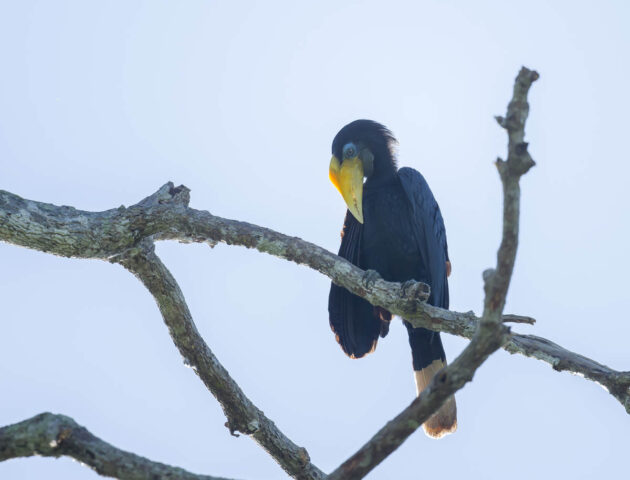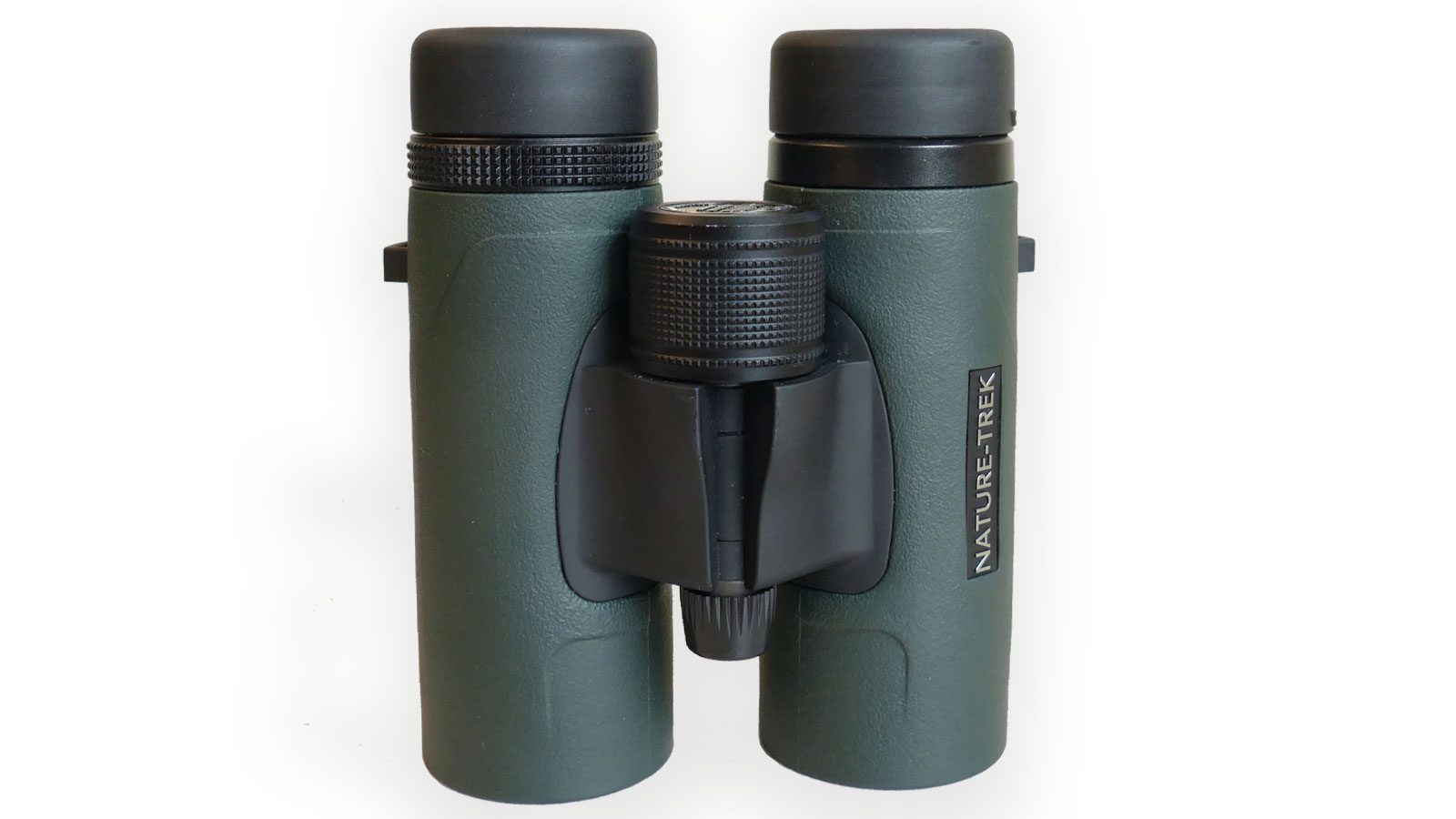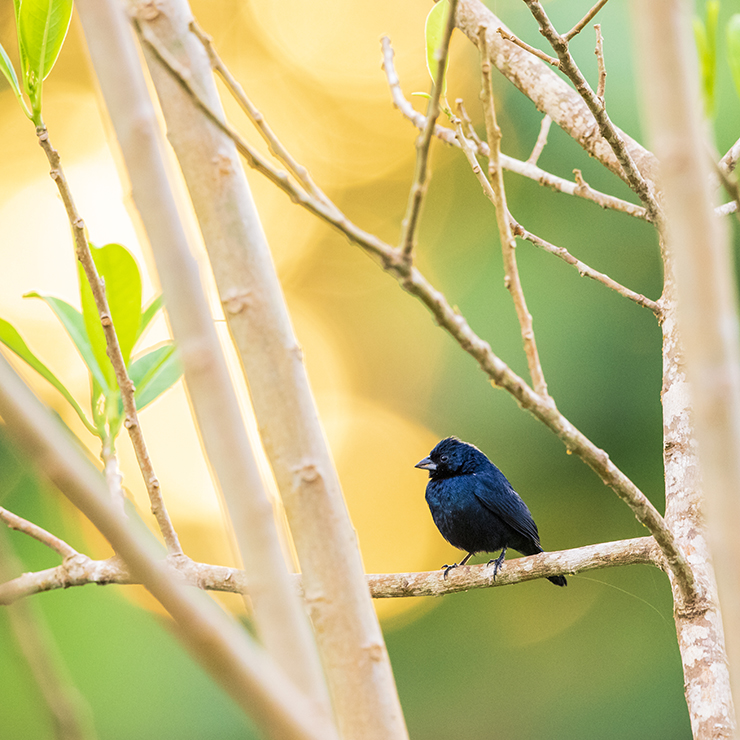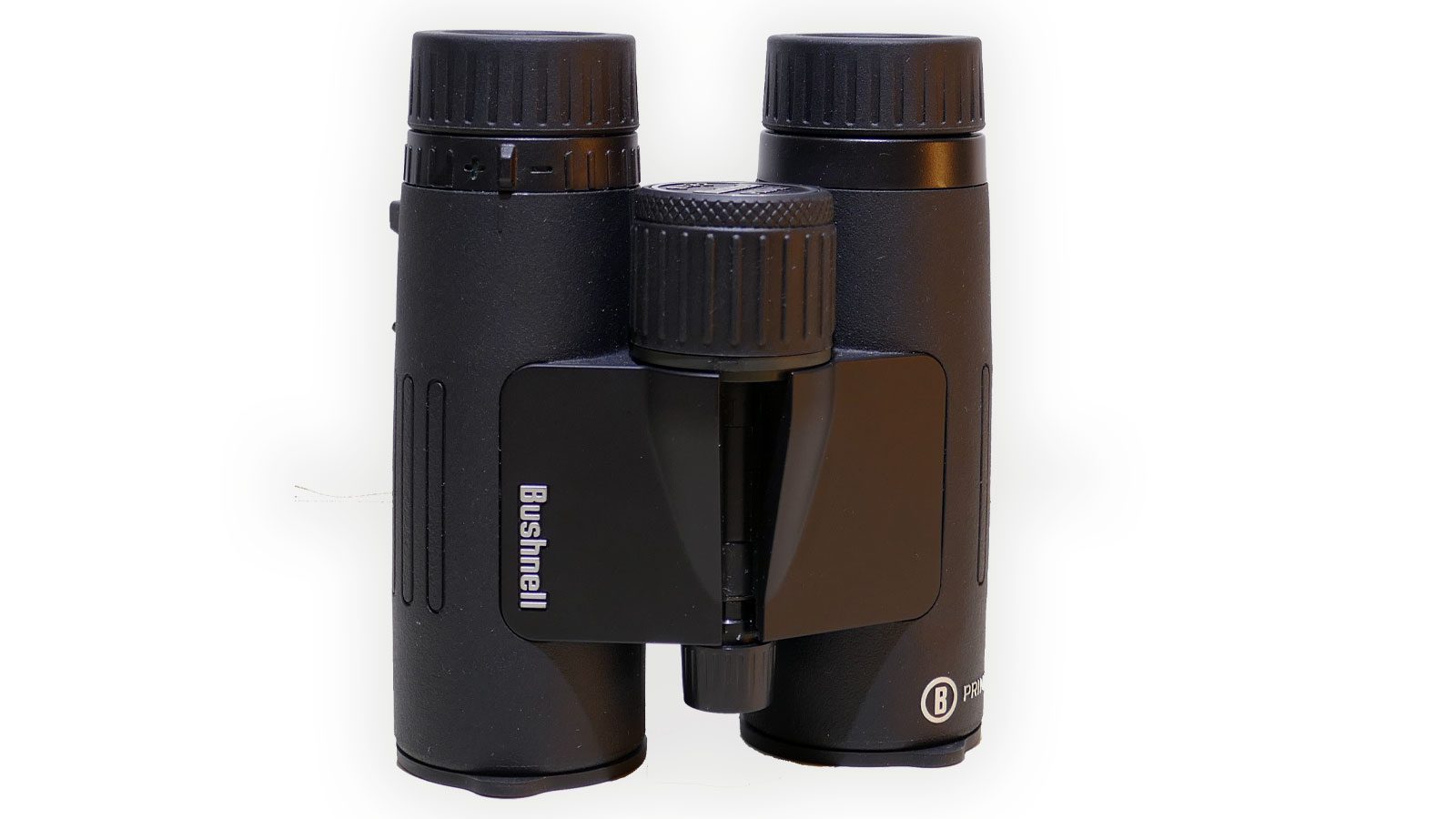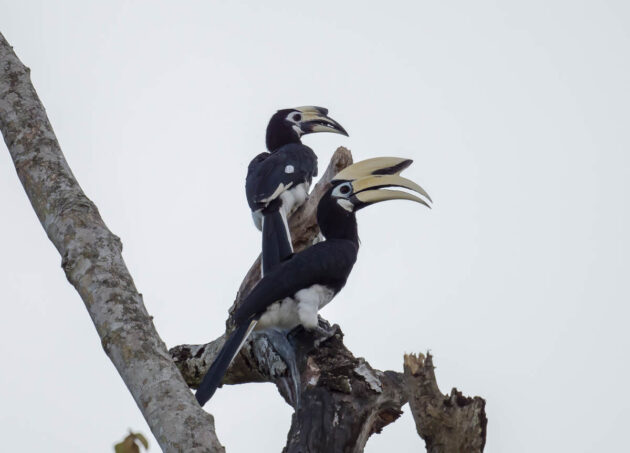
In whole, there are eight species of hornbills in Borneo – one of the best place to see them appears
to be the Kinabatagan River space (also referred to as Sukau). I noticed 4 of them there and
one other one at Tabin. That leaves three hornbill species that aren’t lined on this put up –
the Critically endangered Helmeted Hornbill, the Close to Threatened Bushy-crested Hornbill,
and the Endangered White-crowned Hornbill. An excellent purpose to return again quickly then, I
guess. If you wish to see images of all 8 of them, there’s a good one-page leaflet on-line
which can be the supply of a few of the data beneath.

Principally, hornbills receives a commission by evolution to eat fruit, digest the fleshy elements, and regurgitate or defecate the remaining – a method of seed transportation that’s apparently fairly engaging to many vegetation regardless of the yuck issue concerned.
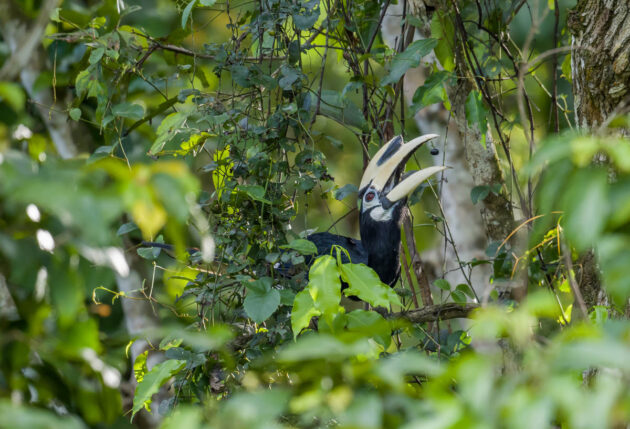
For example, fallen figs don’t appear to thoughts catching a journey with Oriental Pied Hornbills.
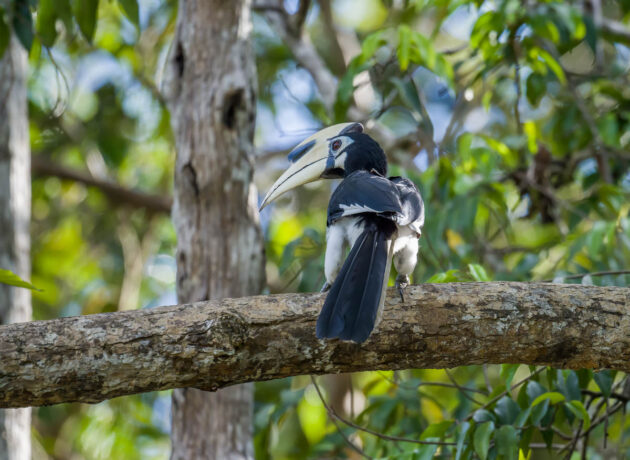
Nevertheless, additionally they feed on different issues which can be much less blissful about being eaten, as demonstrated by the struggling sufferer of this Oriental Pied Hornbill.
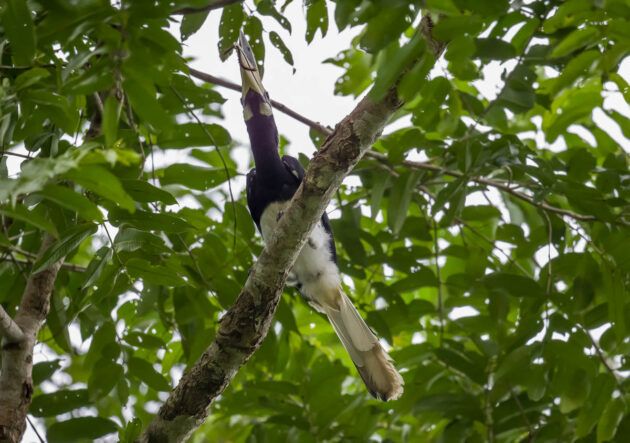
One other merchandise they feed on is searching edible fowl nest swiftlets, that are fairly frequent in edible swiftlet homes in Sabah, Malaysia (source). The a part of the paper out there on-line describes a video through which “the hornbill pair was seen aspect by aspect, observing the swiftlets actions getting into and/or exiting whereas being a few foot away from the sq. entrance of the roof. The primary try in searching was made by the male hornbill which was seen snapping at a passing swiftlet, however was unsuccessful. Concurrently, the feminine hornbill was noticed to observe the swiftlets as seen from her head actions following the flying swiftlets flight.”
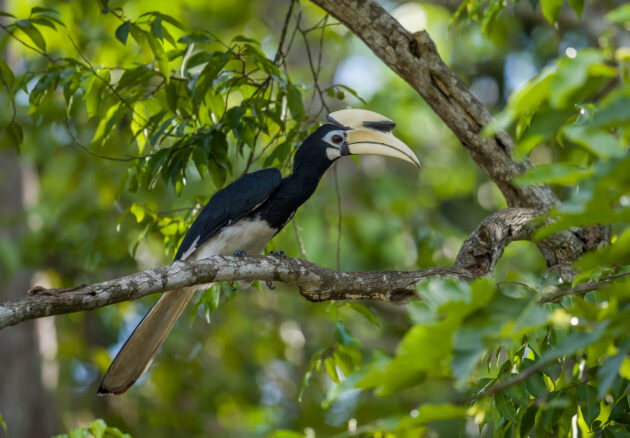
One other paper critiques data on Oriental Pied Hornbills raiding the nests of varied fowl species in Singapore and even pet fowl cages. The latter is even captured in a considerably grotesque video, through which the hornbill plucks a caged fowl out of its cage and kills and eats it.
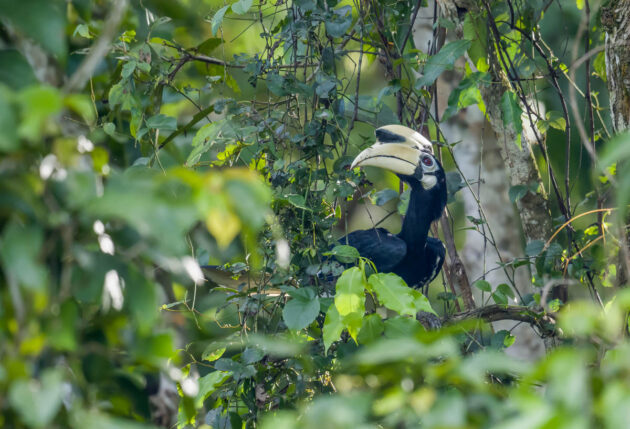
Much more engaging for individuals who like their nature uncooked could also be a paper on infanticide and cannibalism amongst hornbills. It describes how amongst 4 hornbill chicks, the smallest one can not compete for meals and ultimately dies – although the outline of that is far more graphic in the paper:
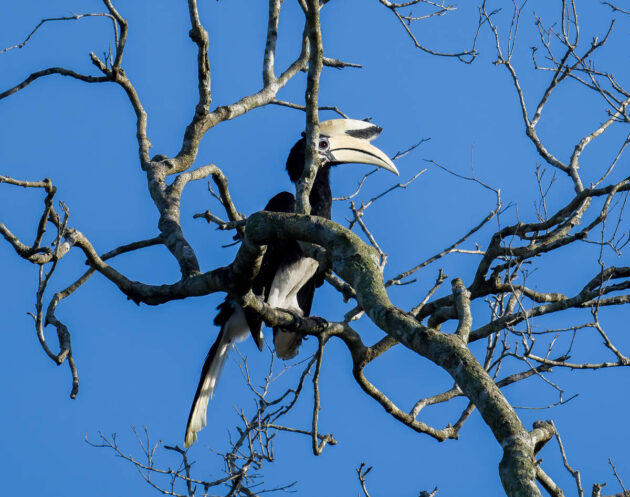
“On the fourth day after hatching, the fourth chick ceased giving begging calls (though it continued gaping). At 15h59, the feminine picked up the fourth chick and killed it by repeatedly crushing it together with her beak. Then she tried to feed it to the remaining chicks. All three chicks tried to swallow it, and after half-hour the second oldest chick succeeded”
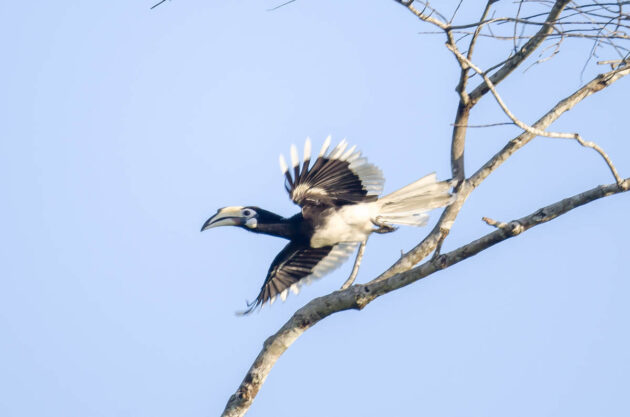
The Oriental Pied Hornbill is the one hornbill labeled as Least Concern, and it may be discovered even in pretty central areas of Singapore. In reality, a recent article within the Economist on Singapore’s rewilding states “The oriental pied hornbill (pictured), with its extraordinary ivory casque, had been domestically extinct for a century. Now pairs of hornbills feed exterior this correspondent’s window”.
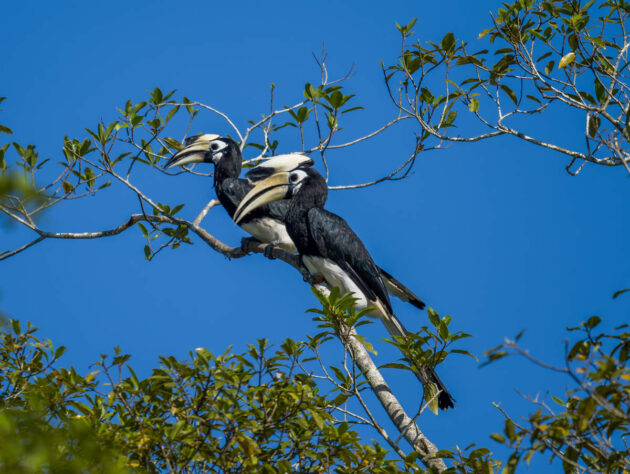
Certainly, this species appears to be the equal of weeds among the many hornbill species. One paper describes them breeding in a human settlement in deserted clay jars.
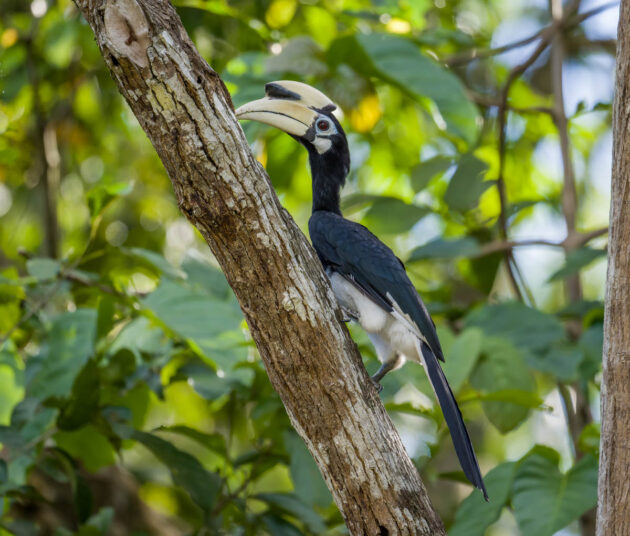
Sadly, the opposite hornbill species usually are not almost as adaptable. The Black Hornbill is listed as Susceptible, a change for the more severe from the earlier itemizing as Close to Threatened.
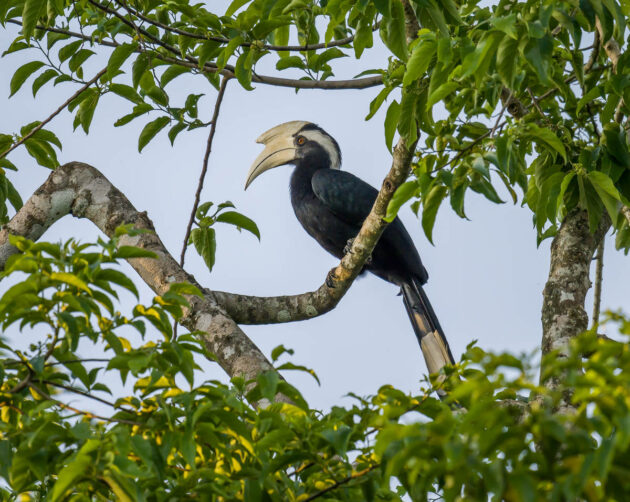
Presumably, the species additionally not solely eats fruit but in addition mammals and presumably birds –the HBW particularly mentions the species catching bats rising from caves at nightfall, and feeding them to juveniles.
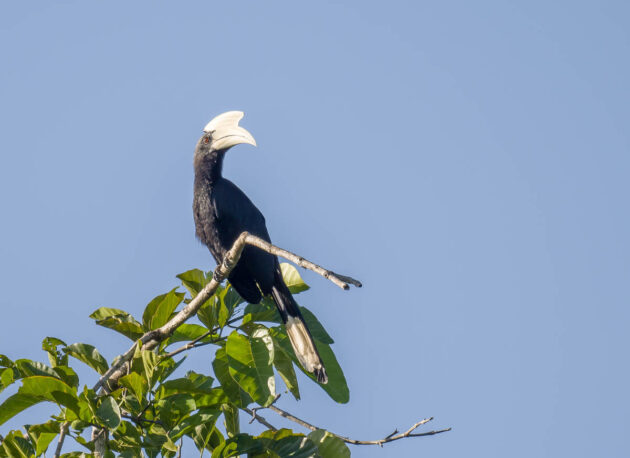
Additionally it is a serious dispenser of Durian fruit, which makes me doubt the style of this species a bit – apparently, in Malay, it’s even known as the Durian fowl (source).
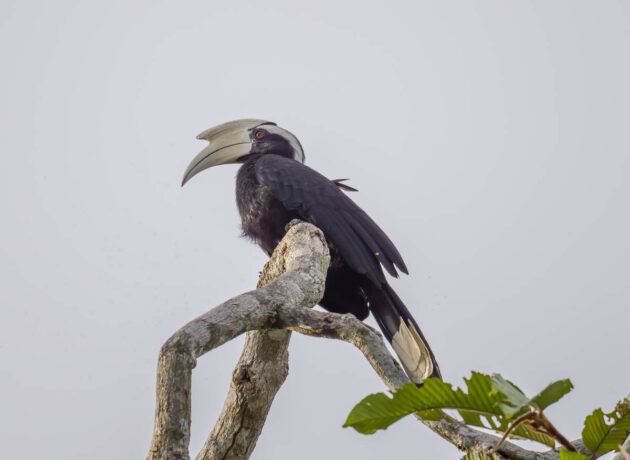
There are some reviews of the species having bred in captivity, for instance, in a British Wild Life Park.
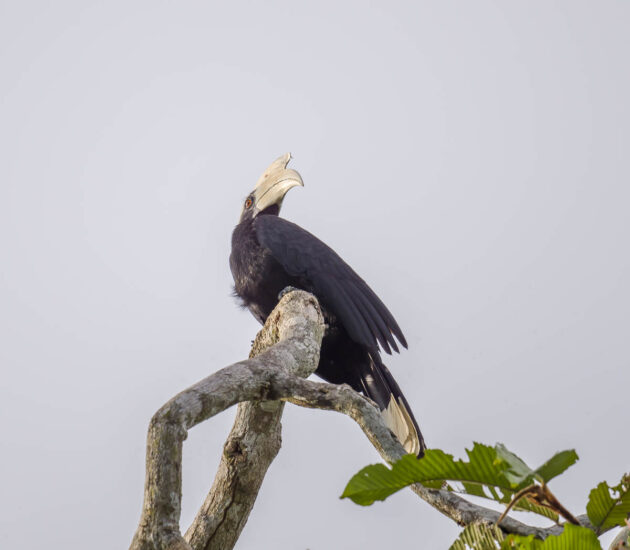
To keep away from quarrels about completely different training types, every grownup attends a separate chick after fledging (supply: HBW). Intelligent.
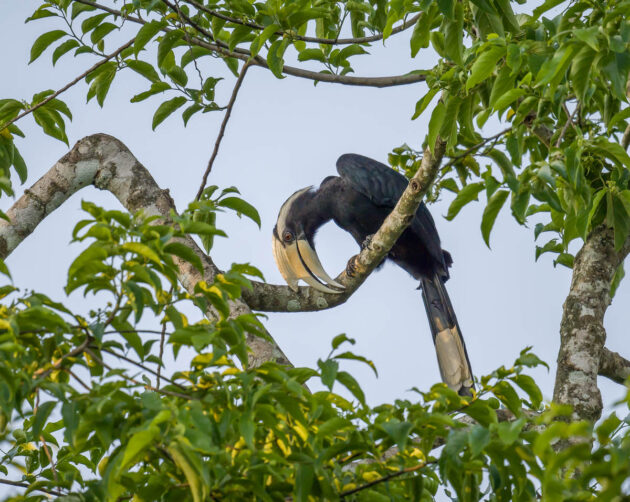
Hornbills use pure cavities in massive residing timber for nesting, as they can’t create their very own nesting holes – an issue when these massive timber are being selectively logged. One resolution employed at Kinabatangan is using synthetic nesting holes – they appear pretty unattractive in my eyes however appear to be accepted by Rhinoceros Hornbills. They’ve been discovered nesting in two of those bins, producing 5 chicks in three years (source).
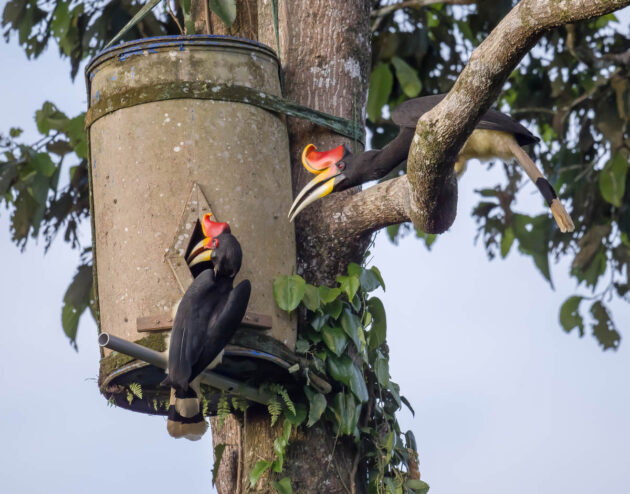
Luckily, Singapore shouldn’t be Florida, the place Mr. DeSantis would most likely have the 2 birds described in a paper culled (although the paper talks about “aberrant” habits, which is a phrase Mr. DeSantis would most likely really feel snug with). The 2 birds in query have been a feminine Nice Hornbill and a feminine Rhinoceros Hornbill, each escapees. Apparently, the 2 birds often have been noticed collectively, with the Nice Hornbill taking part in the position of a male whereas the Rhinoceros Hornbill performed that of a feminine: “The pair nonetheless continued with their courtship feeding across the close by shorter timber, with the Nice Hornbill feeding the Rhinoceros Hornbill with regurgitated meals”.
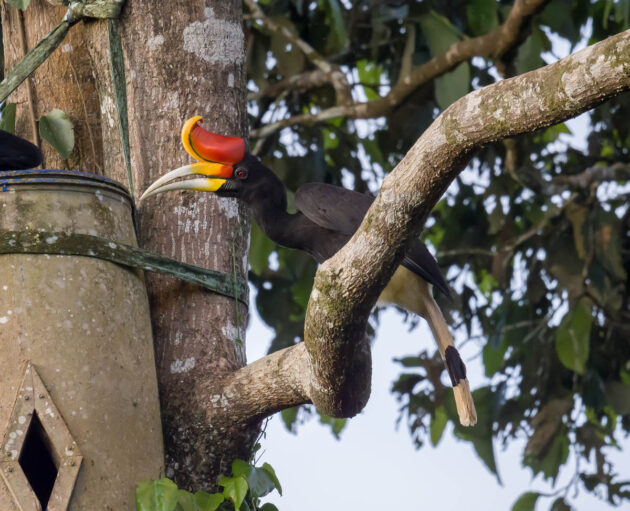
In reality, given the appropriate chromosomes, hybridization is feasible between the 2 species and has been noticed (source).
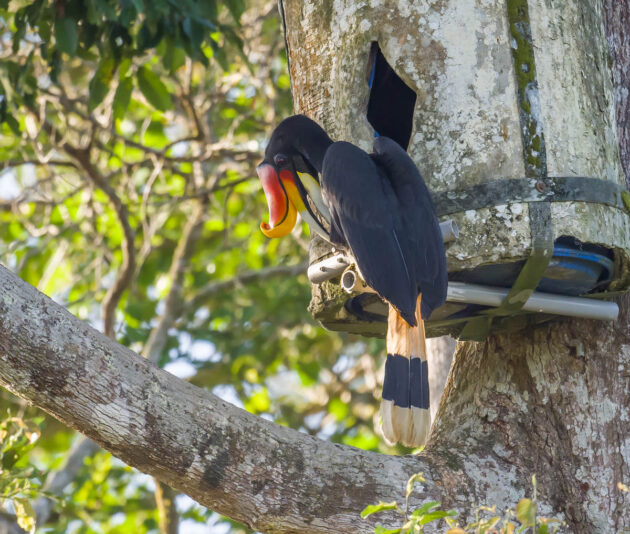
The Rhinoceros Hornbill is the state fowl of the Malaysian state of Sarawak (source), which sadly doesn’t forestall searching of the fowl, not just for meat but in addition for the feathers. Apparently, a single workforce of conventional dancers makes use of about 400 rhinoceros hornbill feathers, which entails killing 40 birds (source).
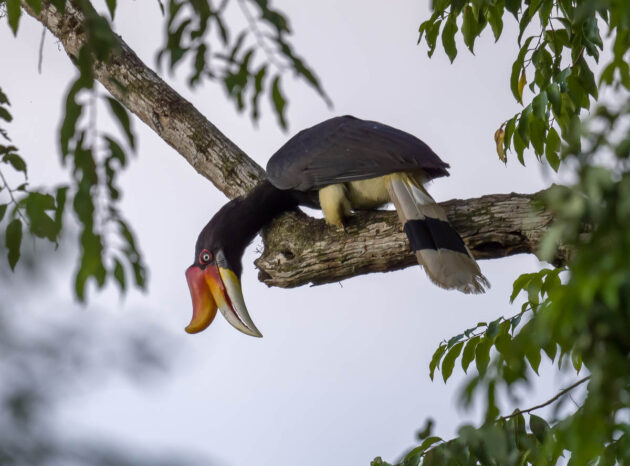
When one Chinese language researcher was very bored, he had a brilliant concept: Why not publish a paper on the entire mitochondrial genome of the Rhinoceros Hornbill?
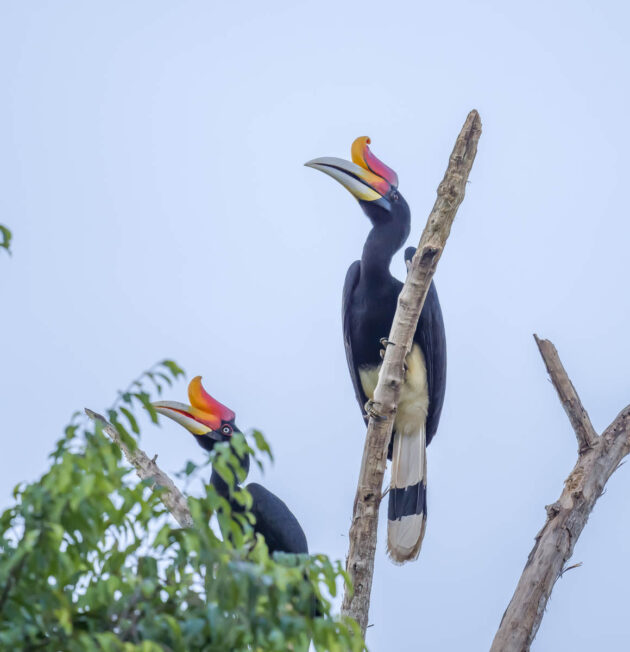
The Wreathed Hornbill can be listed as Susceptible. This species most likely might be fairly common with vegetation on account of its feeding approach that leaves the seeds intact. It’s described intimately on Wikipedia:
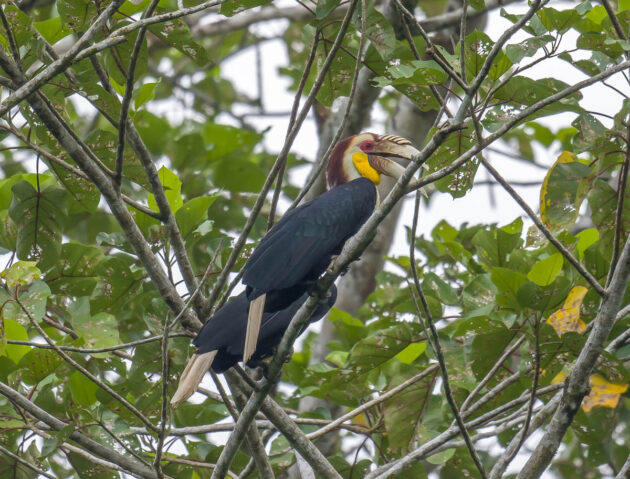
“The feeding approach utilized by the wreathed hornbill known as ballistic meals transport. It holds the massive meals merchandise on the tip of its invoice and throws its head again shortly, swallowing it complete. This habits is more likely to scale back useful resource competitors by exploiting fruit that’s too massive for smaller frugivores. One other benefit to ballistic meals transport is that the fruit seeds are shielded from harm when they’re swallowed complete. The whole seed passes by means of the gastrointestinal tract and is excreted intact, rising its probabilities of germination and forming a brand new plant.”
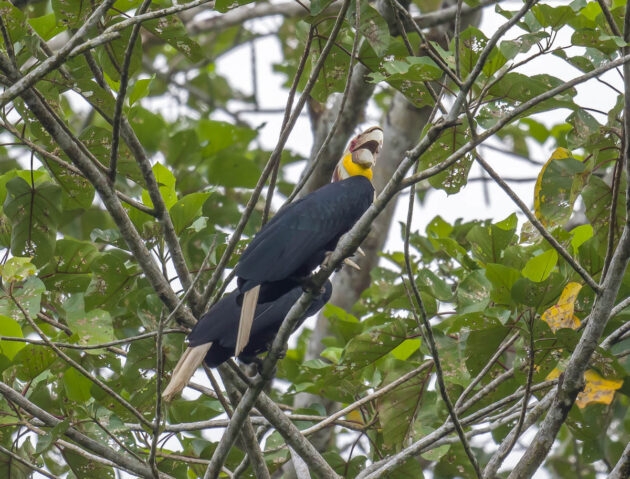
Whereas this species shouldn’t be explicitly related to infanticide, the truth that the fowl lays 1-3 eggs however solely ever raises one chick additionally implies that the species must also be carefully watched by youngster safety businesses.
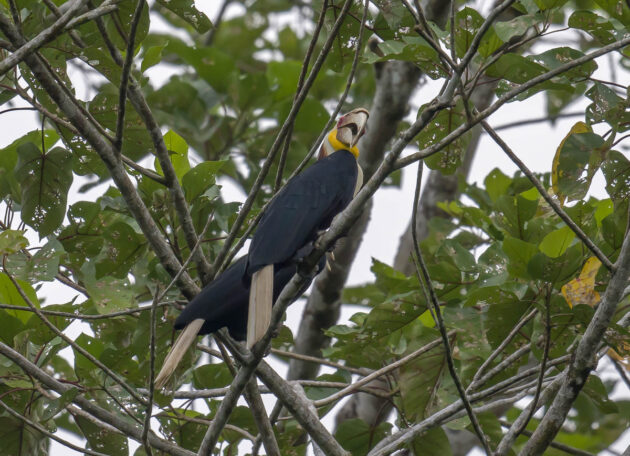
In fact, their very own mom shouldn’t be the one risk to Wreathed Hornbill people. Different threats come up from unlawful logging, looking for bushmeat, and different physique elements (feathers, beak, and so forth.) for adorning the headgear and home interiors by the native tribals, at the least in elements of India (source).
The Wrinkled Hornbill is now listed as Endangered, having been listed as Close to Threatened till 2018 – it appears to have extra particular habitat necessities than a few of the different hornbills, and precisely that habitat is shrinking quickly.
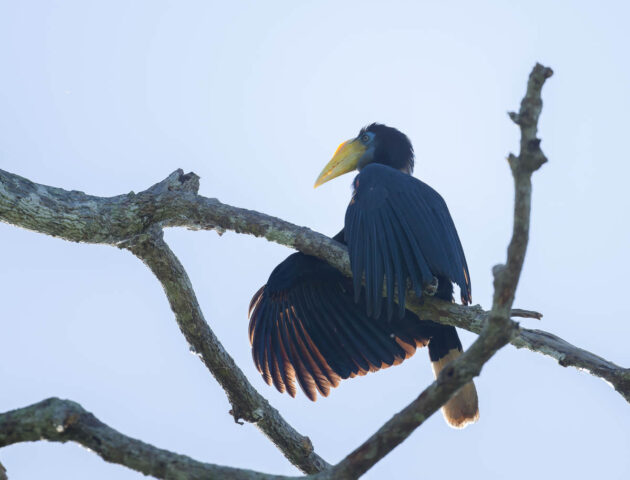
For some purpose, there are a number of papers on varied well being problems with Wrinkled Hornbills. Relying in your particular pursuits, you may peruse papers on proventricular nematodiasis (no matter that’s), Cryptosporidium oocysts (dito), or absolute erythrocytosis.
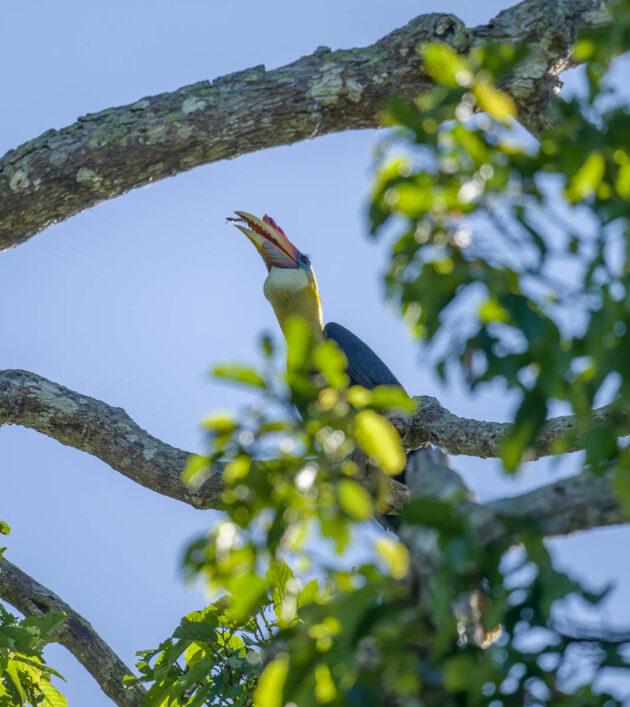
Whereas being a vet actually has its points of interest, together with presumably not having to take care of folks an excessive amount of, the names of those ailments sound considerably off-putting.
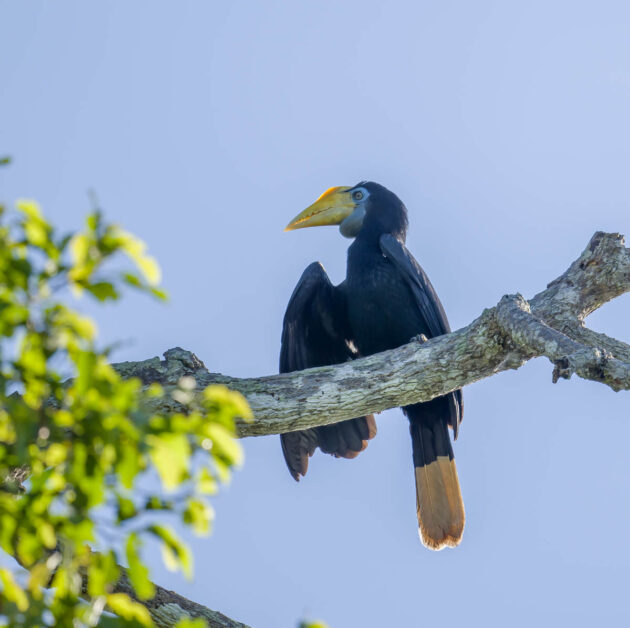
On a extra constructive observe, one study discovered that remnants of forest patches in well-managed oil palm plantations can present habitat for hornbills together with the Wrinkled Hornbill.
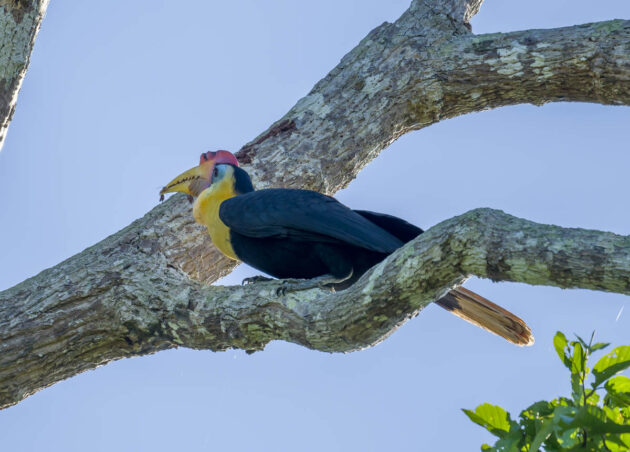
Like the opposite hornbills, it nests in a tree cavity, through which the feminine seals herself in utilizing droppings and meals stays. Throughout the entire incubation and hatching, she is fed by the male by regurgitation by means of a small remaining opening. In fact, if I used to be locked right into a small tree cavity with a bunch of youngsters, I might additionally significantly contemplate infanticide.
